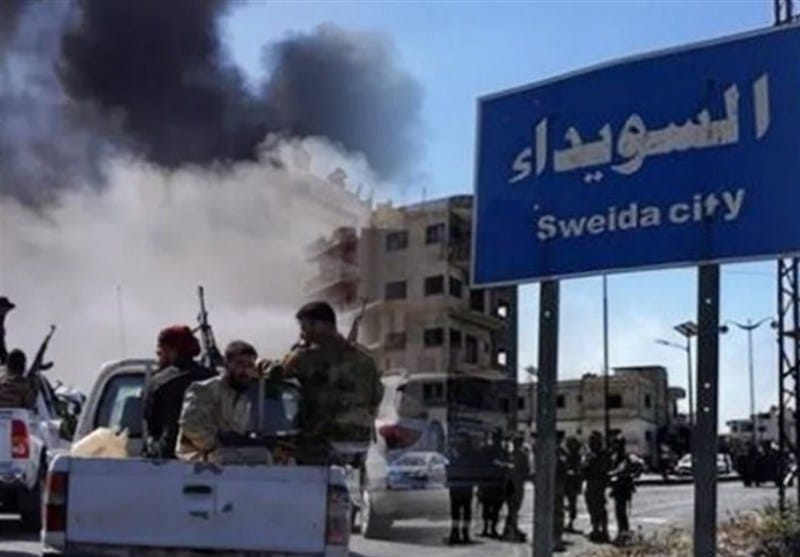Sweida under fire: A narrative of multiple humanitarian crises in Syria’s Druze community.
Despite a fragile ceasefire in Sweida, in the southernmost part of Syria, the ongoing bloody clashes since last week have left a legacy of destruction, killing, and displacement, exposing the dangerous fragility of Sweida’s humanitarian and service systems, especially at the level of emergency civil defense and fire services.
The catastrophic humanitarian situation in Sweida
Following the advance of elements affiliated with the Abu Muhammad al-Julani regime in Syria into Sweida on Monday last week, violent clashes erupted in the province, killing hundreds and destroying and burning dozens of buildings. But this chaotic situation has further exposed the deep humanitarian crisis that Sweida is suffering from, where the acute shortage of ambulances, medical equipment, and essential medicines was visible, leaving little chance of saving the lives of the wounded.
The civil defense system in Sweida province, which was on the front lines, was also unable to cope with the humanitarian disaster. An ambulance driver, who did not reveal his name, told Al-Arabi Al-Jadeed: “The hospital was only 3 kilometers away, but we did not have enough fuel to reach it, so we had to leave the ambulance on the street and beg passing cars to give us some gasoline to save the wounded, but when we returned, it was too late and the wounded had lost their lives.”
A Syrian Red Crescent employee also stated in the same context that we worked with the locals to transport the wounded and carried them with blankets because we do not have enough stretchers. We usually use ordinary vehicles to transport the wounded because there are not enough ambulances, and the few ambulances we have are targeted, multiplying the danger for the civil defense teams and the wounded.
Sweida health crisis; From terrorist attacks on ambulances to power outages
He added: “Our vehicle was targeted several times along the way and I miraculously survived, but one of my colleagues lost his life. I witnessed my colleagues and civilians being killed while carrying the wounded.”
On the other hand, local sources in Sweida reported that the province’s health system has reached the point of collapse, with hospitals, clinics, and other medical facilities operating beyond their capacity amid a severe shortage of medicine, and the chances of saving the wounded are very low. Sweida is also facing a severe shortage of qualified medical personnel, either due to emigration or the inability to reach their places of work.
“The hospital’s water supply was cut off for several days due to the siege by terrorist gangs, and we had no water to clean wounds and sterilize equipment, so we had to use the stored water for drinking, and even our disinfectants ran out, and unfortunately some of the wounds became infected due to the lack of clean water,” says Bezan Abu Hudeir, a civil defense volunteer in Sweida. “I was in the hospital for four days and saw the catastrophic situation with my own eyes. The corridors were full of bodies, and the screams of the wounded, bleeding, and waiting for help filled the air; it was as if the hospital was a battlefield.”

